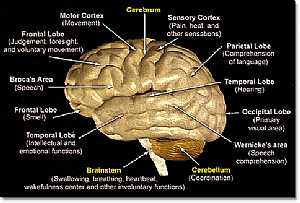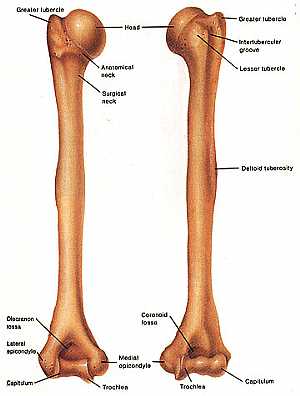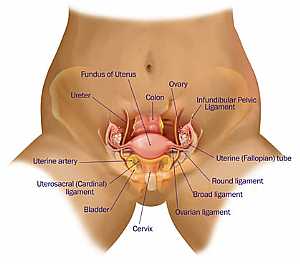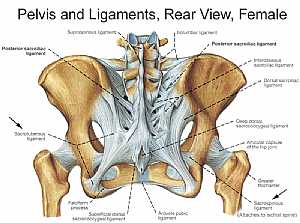Articles for Physicians - Articles by Doctors › Medical Articles › Biomarkers – Making the Appropriate Selection for Clinical Trials
Biomarkers are used in the diagnosis, screening, monitoring and prognosis of health or disease. They are used to predict outcome and to detect recurrence of disease. Use of imaging biomarkers raises issues of quality of the image under various conditions or in various hands (operators, readers). It is important to identify important (and sometimes even less important) sources of variation and to measure them carefully.
Prognostic biomarkers define patient subgroups with better or worse prognosis regardless of treatment. Predictive biomarkers define subgroups with different responses to treatment. Companion biomarkers define subgroups with better or worse prognosis relative to particular treatment(s). They are in vitro diagnostic medical devices that are linked to a therapeutic treatment. So, “companion biomarker” has a usage in the specific context of regulatory approvals.
The first problem, of course, is to determine which biomarker(s) will be useful in subsetting the patient population. Biological considerations usually determine the candidates. Difficulties often arise because prognostic and predictive factors are numerous and often confounded in the population under study. For this case, a biomarker discovery model was developed using COXEN (COeXpression ExtrapolatioN) and subsequently validated in a separate study. COXEN is a computer algorithm that predicts the effectiveness of a chemotherapeutic agent for a particular cell type based on the known in vitro results of the agent on a battery of cancer cell types. It is still considered a research vehicle and not to be used prospectively to choose drugs for particular patients. It doesn’t appear that this algorithm can predict the effectiveness of a totally new agent, only that of a known agent on a new cell type.
The FDA requires direct evidence of clinical utility and benefit from the test for a specific therapy. In terms of pre-analytic consistency and reproducibility, the sample collection time, sample mixture, and technical variability must be specified. There must be a thorough evaluation of analytic variability and consistency. A clinical trial must examine drug-specific predictability of the biomarker.
A future article will focus on companion biomarkers, tests that predict whether or how much more or less a specific treatment will benefit a specific patient.
The author is a Pharma consultant in The CECON Group network and has extensive experience in regulatory statistics in both clinical and preclinical areas. For 25 years, he was a statistical reviewer, supervisor, and manager in the Center for Drug Evaluation and Research (CDER) of the FDA. His expertise includes drug quality, stability, clinical trials, and data integrity. Click here to read more about this regulatory statistician consultant and expert witness.
Prognostic biomarkers define patient subgroups with better or worse prognosis regardless of treatment. Predictive biomarkers define subgroups with different responses to treatment. Companion biomarkers define subgroups with better or worse prognosis relative to particular treatment(s). They are in vitro diagnostic medical devices that are linked to a therapeutic treatment. So, “companion biomarker” has a usage in the specific context of regulatory approvals.
The first problem, of course, is to determine which biomarker(s) will be useful in subsetting the patient population. Biological considerations usually determine the candidates. Difficulties often arise because prognostic and predictive factors are numerous and often confounded in the population under study. For this case, a biomarker discovery model was developed using COXEN (COeXpression ExtrapolatioN) and subsequently validated in a separate study. COXEN is a computer algorithm that predicts the effectiveness of a chemotherapeutic agent for a particular cell type based on the known in vitro results of the agent on a battery of cancer cell types. It is still considered a research vehicle and not to be used prospectively to choose drugs for particular patients. It doesn’t appear that this algorithm can predict the effectiveness of a totally new agent, only that of a known agent on a new cell type.
The FDA requires direct evidence of clinical utility and benefit from the test for a specific therapy. In terms of pre-analytic consistency and reproducibility, the sample collection time, sample mixture, and technical variability must be specified. There must be a thorough evaluation of analytic variability and consistency. A clinical trial must examine drug-specific predictability of the biomarker.
A future article will focus on companion biomarkers, tests that predict whether or how much more or less a specific treatment will benefit a specific patient.
The author is a Pharma consultant in The CECON Group network and has extensive experience in regulatory statistics in both clinical and preclinical areas. For 25 years, he was a statistical reviewer, supervisor, and manager in the Center for Drug Evaluation and Research (CDER) of the FDA. His expertise includes drug quality, stability, clinical trials, and data integrity. Click here to read more about this regulatory statistician consultant and expert witness.
Article By: Mike Fisher - Cecon
History of Telomere and Telomerase
Painless Knee Replacement Surgery! Is It Possible?
Effectiveness of Lauric Acid and Adrographis Extract on Skin Pathogens
ART Laboratory and ART Equipments
Commonly found IBD symptoms
When Eyes Cry: The Cure to Dry Eyes
Lipoprotein lipase for treating Atherosclerosis.
Use of Statistics in Hospital and Healthcare Organizations
Impact of Clinical Pharmacist in an Anticoagulation Management Service in several countries
Abnormal Heart Rate Recovery Immediately After Treadmill Testing : Correlation with Clinical, Exercise Testing, and Myocardial Perfusion Parameters
Application of Statistics in Hospital and Healthcare Organizations
A Polypill Offering Empty Hope
Diabetes Mellitus
Hypoxia: Deadly killer in Anesthesia
Most Read
New Articles
Most Viewed
Most Downloads
 Basal Cell Carcinoma ("Rodent Ulcer" Type)
Basal Cell Carcinoma ("Rodent Ulcer" Type)
 Basal Cell Carcinoma (Histology-Morpheaform Type)
Basal Cell Carcinoma (Histology-Morpheaform Type)
 Basal Cell Carcinoma (Histology-Nodular Type - High power)
Basal Cell Carcinoma (Histology-Nodular Type - High power)
 Basal Cell Carcinoma (Histology-Nodular Type- High power)
Basal Cell Carcinoma (Histology-Nodular Type- High power)
 Skin
Skin
 Nervous System -- Basic
Nervous System -- Basic
 Brain anatomy
Brain anatomy
 Brain anatomy
Brain anatomy
 Brain anatomy
Brain anatomy
 Brain anatomy
Brain anatomy
 Head anatomy
Head anatomy
 Brain anatomy
Brain anatomy
eDoctorOnline.com does not provide medical advice, diagnosis or treatment.
© Copyright 2001-2022 eDoctorOnline.com
© Copyright 2001-2022 eDoctorOnline.com

 Nose anatomy
Nose anatomy Humerus bone
Humerus bone Eye anatomy
Eye anatomy Coronary arteries anatomy
Coronary arteries anatomy Female pelvic anatomy
Female pelvic anatomy Heart and lung anatomy
Heart and lung anatomy Bones and ligaments of the FEMALE Pelvis
Bones and ligaments of the FEMALE Pelvis Neck Anatomy
Neck Anatomy MidBrain anatomy
MidBrain anatomy Oral Cavity
Oral Cavity Stomach anatomy
Stomach anatomy Lung anatomy
Lung anatomy Basal Cell Carcinoma ("Rodent Ulcer" Type)
Basal Cell Carcinoma ("Rodent Ulcer" Type) Basal Cell Carcinoma (Histology-Morpheaform Type)
Basal Cell Carcinoma (Histology-Morpheaform Type) Basal Cell Carcinoma (Histology-Nodular Type - High power)
Basal Cell Carcinoma (Histology-Nodular Type - High power) Basal Cell Carcinoma (Histology-Nodular Type- High power)
Basal Cell Carcinoma (Histology-Nodular Type- High power) Skin
Skin Nervous System -- Basic
Nervous System -- Basic Brain anatomy
Brain anatomy Brain anatomy
Brain anatomy Brain anatomy
Brain anatomy Brain anatomy
Brain anatomy Head anatomy
Head anatomy Brain anatomy
Brain anatomy
Be the first one to comment on this article!